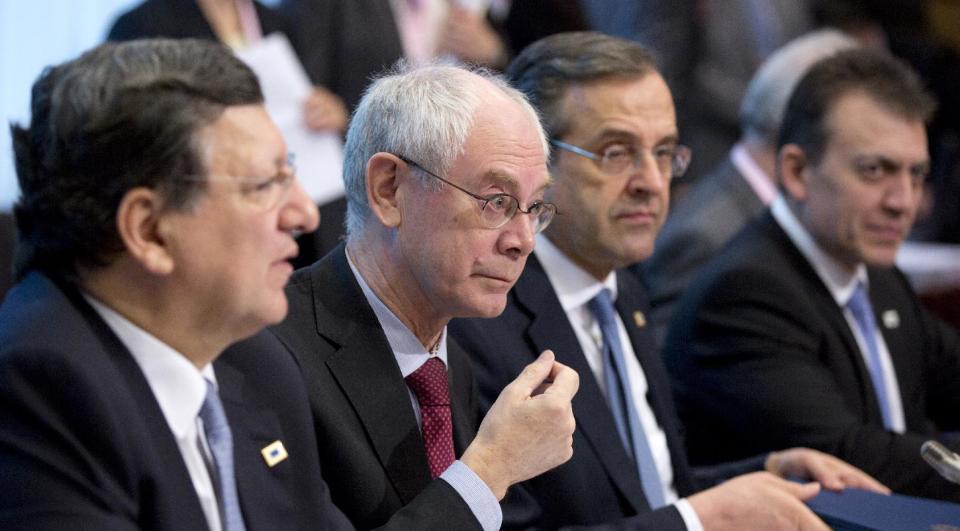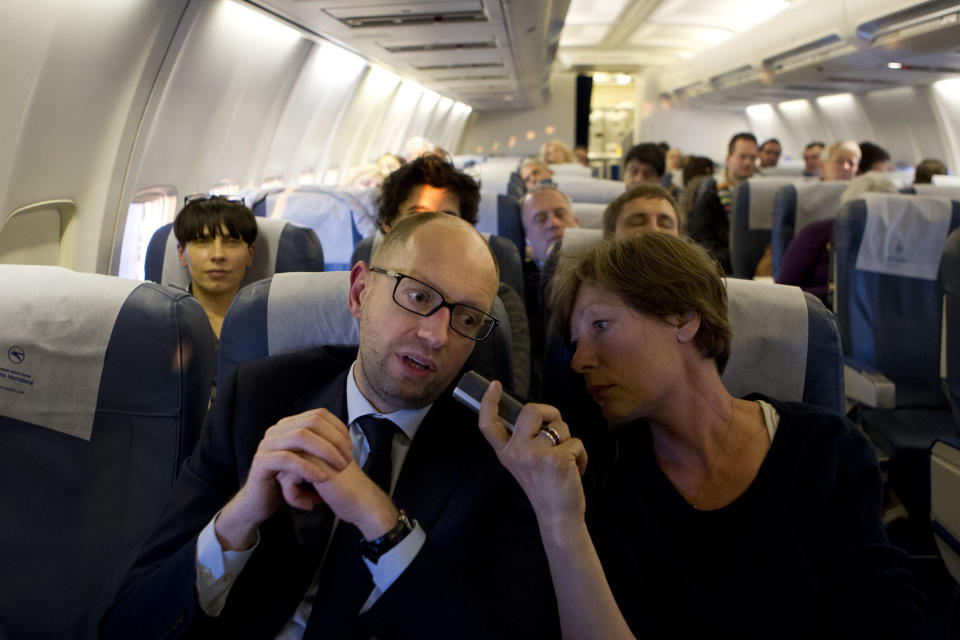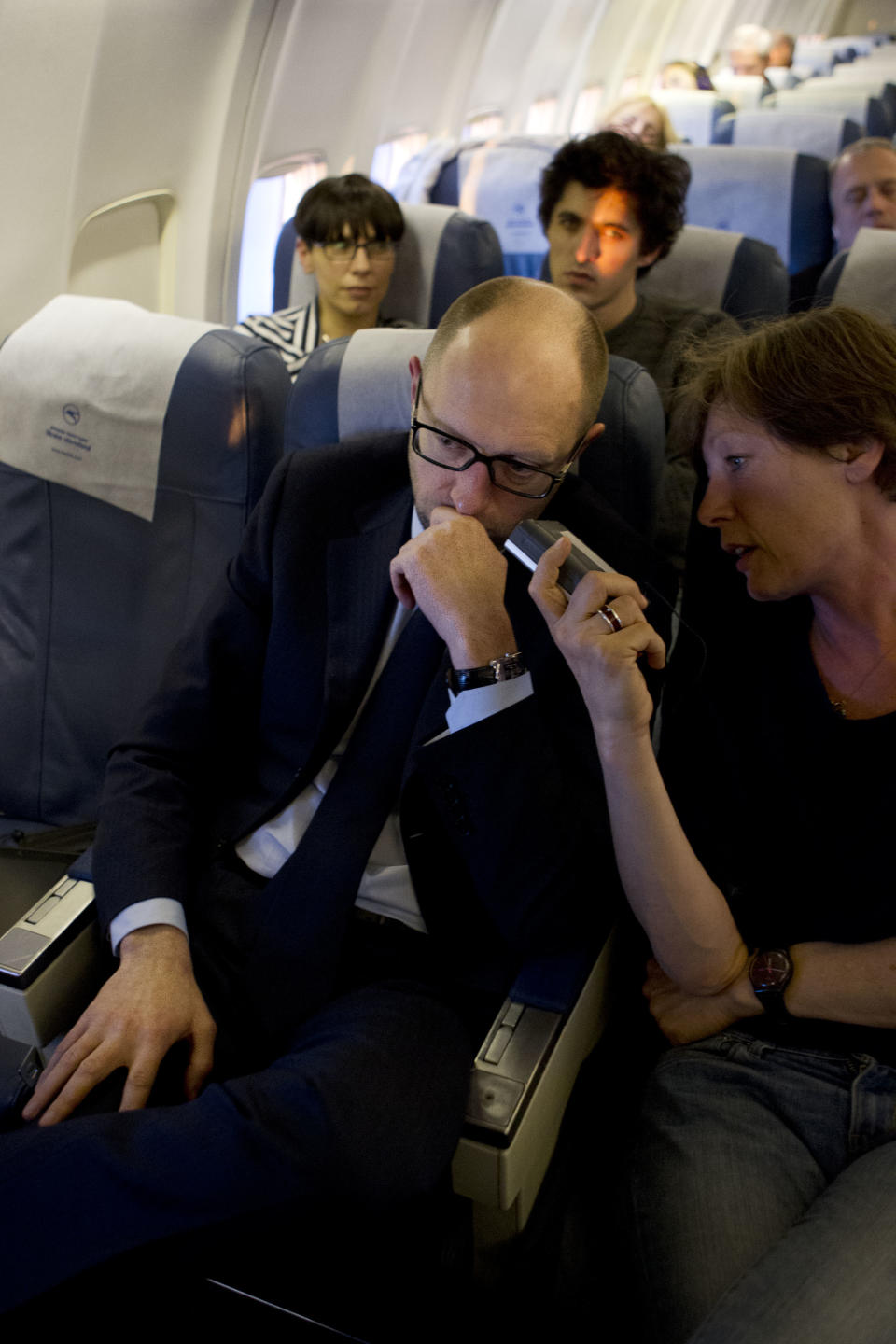France says EU-Russia summit scrapped over crisis
BRUSSELS (AP) — European Union leaders said Thursday they would widen the number of people hit with a travel ban and frozen assets in response to Russia's annexation of the Crimea peninsula, and announced plans to scrap a scheduled EU-Russia summit.
French President Francois Hollande said "there was supposed to be a summit between EU and Russia that cannot happen in these circumstances."
Chancellor Angela Merkel told the German parliament that EU leaders would increase the number of people affected by asset freezes and travel bans — initially at 21 politicians and military commanders — and reiterated that if the situation worsens, the EU is prepared to move to another level, which would include economic sanctions.
British Prime Minster David Cameron said that the two-day summit was to center just as much on strengthening Ukraine's fledgling government, calling on the 28 EU nations' need to bolster the new Ukrainian authorities with political commitments and economic aid.
The EU is Russia's biggest trading partner, and Russia is the EU's third-largest partner, mostly thanks to exports of raw materials such as oil and gas. Because of the multi-billion trade exchanges, any step toward economic sanctions will not be taken lightly.
EU nations had already canceled the preparation of a G-8 summit set for June in Sochi and, as a second phase, on Monday imposed the first round of visa bans and asset freezes on 21 people linked to the widely condemned annexation.
Hollande's announcement to scrap a bilateral summit was a natural extension.
But France also took pains to keep diplomatic channels open. Defense Minister Jean-Yves Le Drian said the planned delivery this fall of two warships to Russia was still on track.
"I hope by then, we'll have de-escalated" with Moscow, he said.
At the same time, the EU leaders planned to give the new government in Kiev all the support it could.
Barroso said that the most urgent thing is to make sure a "credible, stable, viable, democratic, prosperous Ukraine" survives after President Viktor Yanukovych fled to Russia Feb. 21 and an interim government under prime minister Arseniy Yatsenyuk was installed.
Yatsenyuk arrived in Brussels to sign a political agreement Friday with EU leaders, underscoring the commitment of Europe to the new leadership in Kiev.
___
Jamey Keaten contributed from Paris
___
Follow Raf Casert on Twitter at http://www.twitter.com/rcasert




